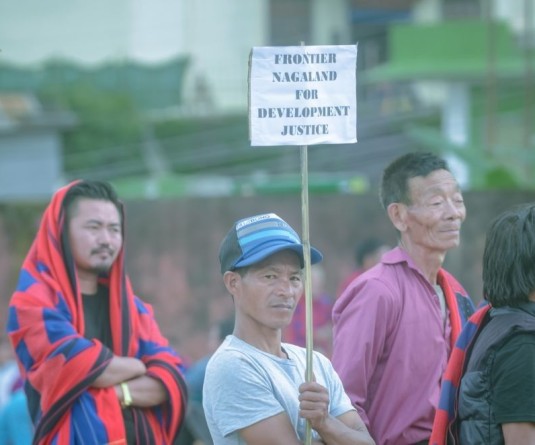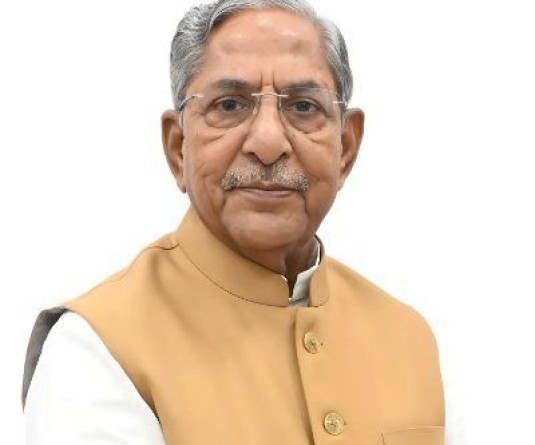
Prof. VN Rajasekharan Pillai talks about education at ICFAI University Nagaland seminar
Morung Express News
Dimapur | February 11
India is at the bottom of the world pot when it comes to political representation for women. This may be due to the inability of the education system to part education rooted in context that can bring up empowered citizens with knowledge and skills to facilitate sustainable development.
Prof. VN Rajasekharan Pillai, former chairperson of the University Grants Commission (UGC), put these thoughts into perspective today while speaking at the Inaugural Programme of a National Seminar on ‘Gender and Politics: Rhetoric and Applicability’ being held at ICFAI University Nagaland auditorium in Sovima, February 11 and 12.
Alongside Deo Nukhu, Nagaland’s Parliamentary Secretary for Higher & Technical Education, a book titled ‘Education and Nation Building’ by Col. Dr. VRK Prasad, Vice Chancellor of ICFAI University Nagaland, was released today. It has been published by Heritage Publishing House, Dimapur.
“For sustainable development, it is important to develop the right kind of human resources,” noted Prof. Pillai in his keynote address. The role of educational institutions and systematic training is essential for this.
“Any society that invests in good primary education evolves well, irrespective of gender, caste or creed,” he maintained. Education’s duty is to make every person aware, for instance, of their entitlements as human beings, whether political, cultural or social, leading to their empowerment.
Education should provide knowledge and skills but also the context in which these are learnt, said the former UGC chairperson. Without an understanding of the cultural, socio-political or philosophical premise in which the student is located, knowledge and skills will not be applicable. “The text and context relation is very essential without which education becomes irrelevant and fails to enhance the quality of life,” he asserted.
Giving an example, Prof. Pillai said that Nagaland has a context completely different from even the other states of the North East, leave alone the rest of India. “The context of society is dynamic in nature. A person giving education should keep this in mind. Education is for life and throughout life. Thus, life experiences are a significant part of education,” he said.
Education, thus, should put us in a position to understand the politics of our locality, state, country and the world. While school syllabus is the “skeleton” of education, the experience of life becomes the “flesh and blood” of education. “A degree, diploma or any other certificate is just a license for real education to begin,” he reflected. With a certificate, we tend to think of ourselves as somehow better than others. But proper education begins only when we shed this prejudice and bring humility in order to start the true process of education, learning from all contexts of life.





